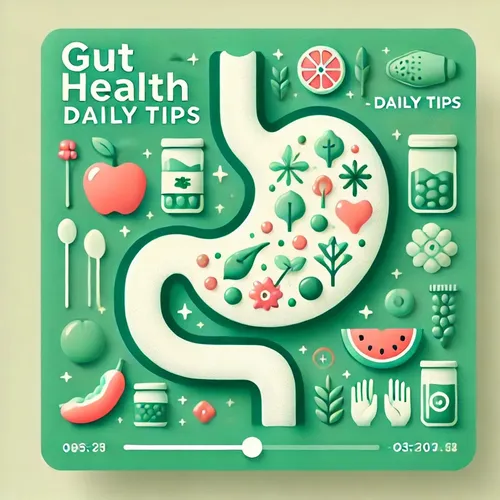Unlock the Key to Optimal Health: Discover the Power of Gut Health
- Author
- Quiet. Please
- Published
- Mon 01 Sep 2025
- Episode Link
- https://www.spreaker.com/episode/unlock-the-key-to-optimal-health-discover-the-power-of-gut-health--67575877
Gut health is a cornerstone of overall well-being, influencing everything from digestion to mental health. The gut is home to trillions of microorganisms, collectively known as the gut microbiome, which play a critical role in maintaining digestive health, strengthening the immune system, and even regulating mood and psychological processes. An imbalance in this complex ecosystem can lead to various health issues, including digestive disorders, weakened immunity, and even anxiety or depression.
To enhance your gut health, consider incorporating fermented foods into your diet. Fermented products like yogurt, kefir, sauerkraut, kimchi, and kombucha are rich in probiotics, live bacteria that replenish and diversify the gut microbiome. A daily serving of these foods can cultivate a thriving gut environment, reducing inflammation and improving nutrient absorption.
Prebiotics are equally important. These are dietary fibers that feed the beneficial bacteria in your gut. Foods such as bananas, onions, garlic, leeks, and asparagus are excellent prebiotic sources. Adding them to your meals can help maintain a balanced gut microbiome, as they support the growth of good bacteria.
In addition to dietary changes, staying hydrated is crucial for gut health. Proper hydration assists in maintaining the mucosal lining of the intestines and facilitates the balance of beneficial bacteria. Aim for at least eight glasses of water a day, but adjust according to your activity level and climate conditions.
Regular exercise is another vital component. Physical activity promotes the growth of beneficial bacteria and enhances gut motility, reducing the risk of constipation. Integrating moderate exercises like walking, cycling, or yoga into your routine can stimulate positive changes in your gut flora.
Stress management is also critical, as chronic stress negatively impacts the gut. Techniques such as meditation, deep breathing exercises, and adequate sleep can significantly bolster your gut health. Establish a sleep routine and make room for relaxation activities to ensure your body and mind remain balanced.
Finally, avoid unnecessary use of antibiotics, as they can disrupt the balance of gut bacteria by wiping out both good and bad bacteria. When antibiotics are necessary, consider taking a probiotic supplement to help restore the equilibrium of your gut flora.
Maintaining a healthy gut requires a multifaceted approach, combining dietary habits with lifestyle changes. By incorporating these strategies, you can foster a robust gut microbiome and, in turn, support your overall health and well-being.
For more http://www.quietplease.ai
Get the best deals https://amzn.to/3ODvOta
